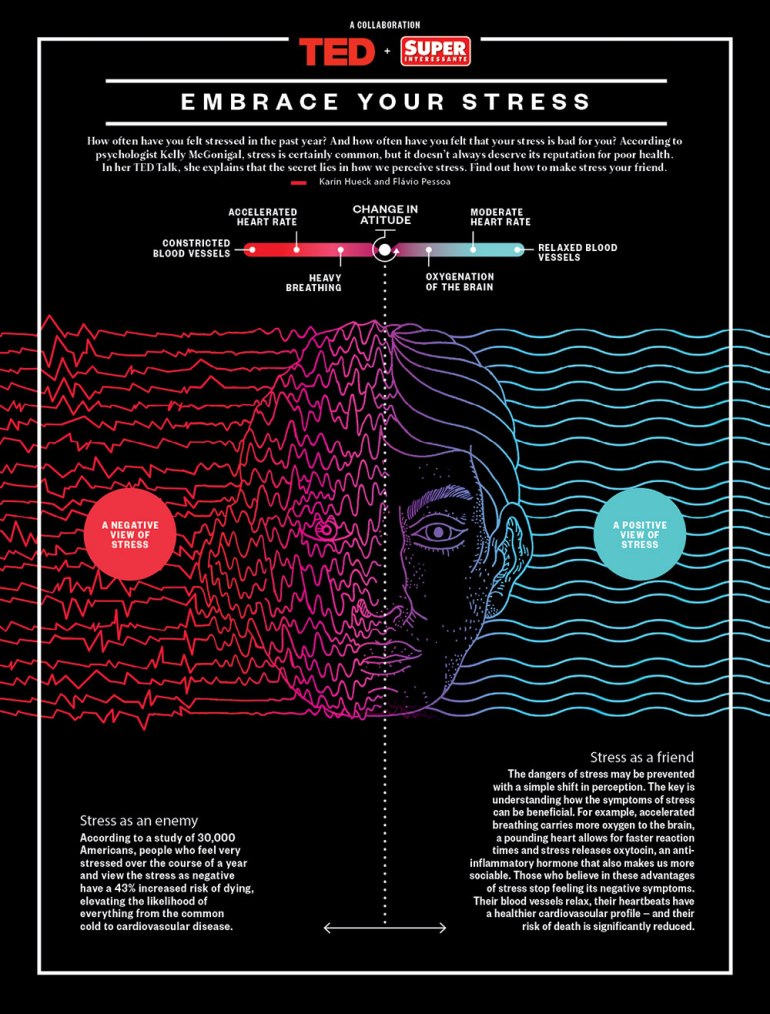
Stress is real, even if the source of your stress is only in your head. The pounding heart, fast breathing, and racing thoughts… Whether you are about to give a presentation, perform in front of an audience, meet your new boss or jump off of a plane with a parachute on your back, your body and your mind are pulsating with anxiety — or is it eager excitement and anticipation? A simple shift in perception could be the key to changing your relationship with stress.
Stress is an inevitable part of life, so what would happen if we could re-frame our stress response and make friends with it? Sometimes, there is no amount of meditation or deep breathing that is going to quell our stress or anxiety, and we need to use a different approach. The latest research in the field of stress and health is suggesting that simply changing our perceptions of stress can actually protect our bodies from the damaging effects of the stress response.
Instead of internalizing your stress negatively (“this stress is killing me”), you can channel your stress response into excitement or anticipation and actually use it to improve your performance. In fact, elite athletes do this on a regular basis, viewing stress as energy that can fuel them. Research studies have also demonstrated that people who are encouraged to interpret stress symptoms as a “helpful boost” actually perform better on physical, cognitive and social tasks. Other proven techniques for positively transforming stress involve seeing stressful situations as opportunities for personal growth, and using stressful situations as opportunities to reach out and connect with others.
When you make friends with your stress, and stop resisting it, your blood vessels relax and the health damaging effects of stress are significantly reduced. When it comes to stress, resistance is futile. Embrace it as a part of your life — a natural response that can improve your performance and help you grow — and your body will thank you.